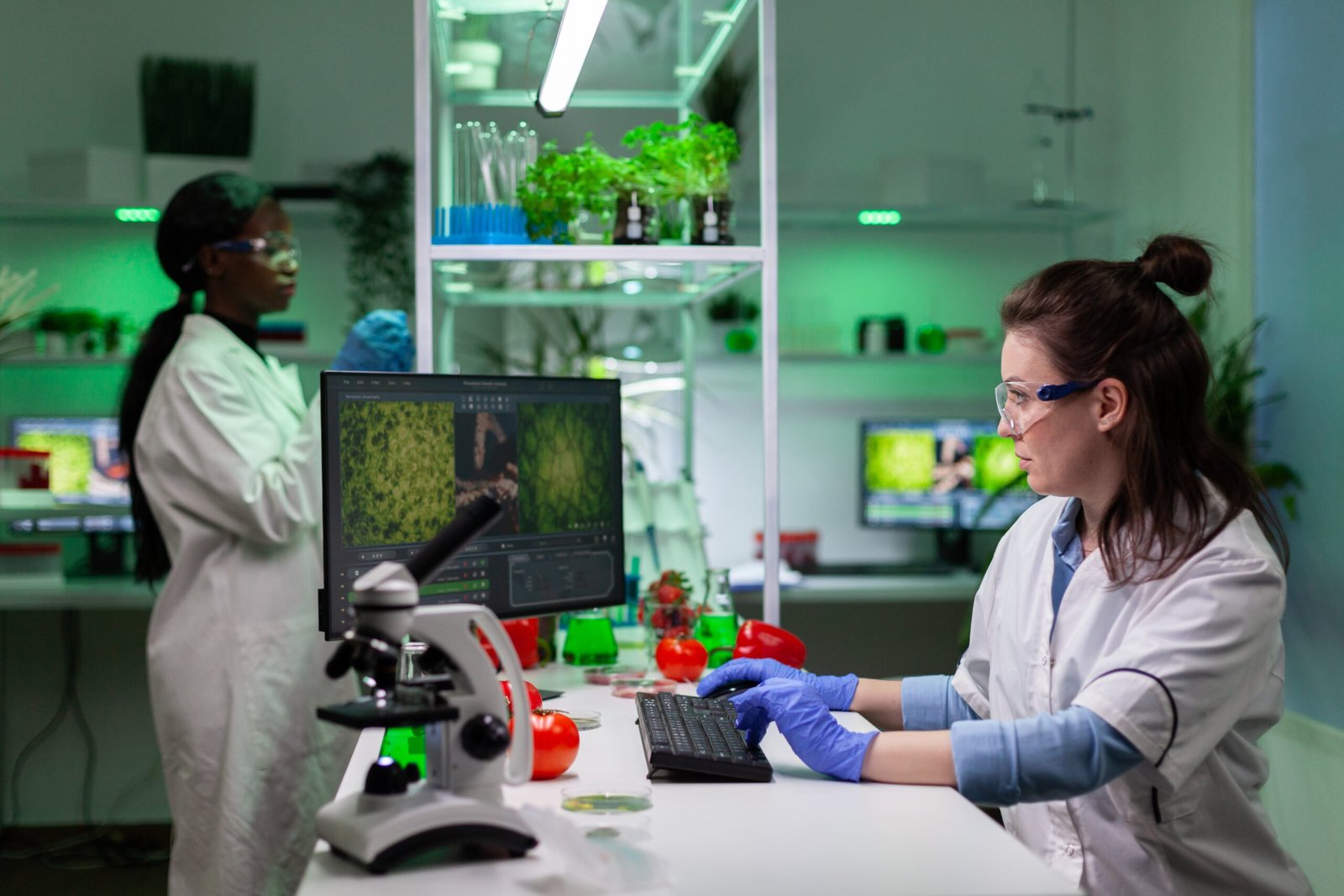Pharmaceutical Advances: Pioneering Drug Research
Pharmaceutical Advancements: Leading the Way in Drug Research

Introduction:
In an era where healthcare innovation is accelerating at an unprecedented pace, the pharmaceutical industry stands at the forefront of medical research and development. From groundbreaking drug discoveries to novel therapeutic approaches, pharmaceutical advancements are reshaping the future of medicine. This article delves into the critical areas that are leading the way in drug research, showcasing the transformative impact of these innovations on global health.
Precision Medicine: Tailoring Treatments to Individuals
Precision medicine represents a paradigm shift in how diseases are treated. Unlike the traditional one-size-fits-all approach, precision medicine involves tailoring treatments to individual patients based on their genetic makeup, lifestyle, and environmental factors. The promise of precision medicine lies in its potential to enhance treatment efficacy while minimizing adverse effects.
A prime example of precision medicine is the use of genetic testing to guide cancer treatment. By analyzing the genetic profile of a tumor, oncologists can identify specific mutations and select targeted therapies that are more likely to be effective. For instance, drugs like Trastuzumab (Herceptin) source have transformed the treatment of HER2-positive breast cancer, significantly improving patient outcomes.
Moreover, advancements in pharmacogenomics – the study of how genes affect a person’s response to drugs – are paving the way for personalized medications. This field is particularly promising in areas such as psychiatry, where genetic variations can influence the efficacy and side effects of antidepressants and antipsychotics. As research in precision medicine progresses, it is expected to revolutionize various medical fields, from oncology to cardiology.
Biologics and Biosimilars: The Next Generation of Therapeutics
Biologics are complex drugs derived from living organisms, and they have brought about significant advancements in treating chronic diseases like rheumatoid arthritis, multiple sclerosis, and certain types of cancer. Unlike traditional small-molecule drugs, biologics are large, complex molecules that often mimic substances naturally produced by the body, such as proteins, antibodies, and hormones.
One of the most well-known biologics is Adalimumab (Humira) source, used to treat autoimmune diseases. Its success has paved the way for the development of numerous other biologics, which have become essential tools in modern medicine. However, biologics are often expensive and can be challenging to produce.
Enter biosimilars – highly similar versions of already approved biologics. Biosimilars aim to reduce healthcare costs and increase patient access to cutting-edge therapies. For example, Zarxio, a biosimilar to Neupogen, has been approved to help reduce infections in cancer patients receiving chemotherapy source. The introduction of biosimilars is expected to foster competition, ultimately benefiting patients and healthcare systems worldwide.
Immunotherapy: Harnessing the Power of the Immune System
Immunotherapy has emerged as a revolutionary approach to treating cancer and other diseases by leveraging the body’s immune system to fight off malignancies. Unlike conventional treatments like chemotherapy, which directly target cancer cells, immunotherapies stimulate the immune system to recognize and destroy these cells.
Checkpoint inhibitors are a notable class of immunotherapies that have shown remarkable success in treating various cancers. Drugs like Pembrolizumab (Keytruda) and Nivolumab (Opdivo) source work by blocking proteins that prevent immune cells from attacking cancer cells. These therapies have significantly improved survival rates in patients with advanced melanoma, lung cancer, and other malignancies.
Another promising area is CAR-T cell therapy, which involves modifying a patient’s T-cells to better recognize and attack cancer cells. This technique has achieved impressive results in treating certain blood cancers, such as acute lymphoblastic leukemia (ALL) source. As research in immunotherapy continues to advance, it holds the potential to transform the landscape of cancer treatment and beyond.
Nanotechnology in Drug Delivery: Enhancing Efficacy and Safety
Nanotechnology involves manipulating matter at the nanoscale to create novel materials and devices. In the pharmaceutical industry, nanotechnology is being harnessed to develop advanced drug delivery systems that can improve the efficacy and safety of treatments. Nanoparticles can be designed to deliver drugs directly to specific cells or tissues, minimizing side effects and enhancing therapeutic outcomes.
One of the most notable applications of nanotechnology in medicine is the use of liposomes – tiny lipid-based vesicles – to encapsulate drugs and deliver them to targeted sites in the body. Doxil, a liposomal formulation of the chemotherapy drug doxorubicin, is used to treat ovarian cancer and Kaposi’s sarcoma source. This targeted delivery helps reduce the drug’s toxicity to healthy tissues.
Moreover, nanoparticles are being explored for their potential to cross biological barriers like the blood-brain barrier, opening new avenues for treating neurological disorders. For instance, researchers are developing nanoparticle-based systems to deliver therapeutic agents directly to brain tumors, which could revolutionize the treatment of glioblastoma source. As nanotechnology continues to evolve, it promises to unlock new possibilities in drug delivery and disease management.
Artificial Intelligence and Machine Learning: Accelerating Drug Discovery
Artificial Intelligence (AI) and Machine Learning (ML) are transforming the pharmaceutical industry by accelerating the drug discovery process. Traditionally, drug discovery involves a lengthy and costly trial-and-error approach. However, AI and ML algorithms can analyze vast datasets to identify potential drug candidates more efficiently and accurately.
One of the most significant contributions of AI in drug research is its ability to predict how molecules will interact with biological targets. By using computational models, researchers can screen thousands of compounds in silico before conducting laboratory experiments. This approach has already led to the identification of promising drug candidates for diseases like COVID-19 source.
Furthermore, AI is being employed to optimize clinical trial design and patient recruitment, potentially reducing the time and cost associated with bringing new drugs to market. For example, IBM Watson Health has developed AI-powered tools to match patients with appropriate clinical trials based on their medical history and genetic profile source. As AI continues to advance, its integration into pharmaceutical research is expected to drive significant efficiencies and innovations.
Conclusion:
The pharmaceutical industry is experiencing a renaissance of innovation, driven by advancements in precision medicine, biologics and biosimilars, immunotherapy, nanotechnology, and artificial intelligence. These breakthroughs are not only transforming the landscape of drug research but also offering new hope to patients worldwide. As we continue to push the boundaries of medical science, the future holds promise for even more remarkable discoveries and improvements in healthcare.
Key Takeaways:
- Precision Medicine: Personalized treatments based on genetic profiles are enhancing efficacy and reducing side effects.
- Biologics and Biosimilars: Complex drugs from living organisms are treating chronic diseases, with biosimilars increasing accessibility and reducing costs.
- Immunotherapy: Leveraging the immune system to combat cancer is showing remarkable success.
- Nanotechnology in Drug Delivery: Advanced systems are improving drug efficacy and safety, particularly in oncology.
- Artificial Intelligence and Machine Learning: AI and ML are accelerating drug discovery and optimizing clinical trials.
FAQs
- What is precision medicine?
- Precision medicine tailors treatments to individual patients based on their genetic, lifestyle, and environmental factors. This approach aims to enhance treatment efficacy while minimizing adverse effects.
- Refer to more details here.
- How do biologics differ from traditional drugs?
- Biologics are large, complex molecules derived from living organisms, whereas traditional drugs are small, chemically synthesized molecules. Biologics often mimic substances naturally produced by the body.
- Learn more about biologics here.
- What are biosimilars?
- Biosimilars are highly similar versions of already approved biologic drugs. They aim to reduce healthcare costs and increase patient access to advanced therapies.
- More information on biosimilars here.
- What is immunotherapy?
- Immunotherapy leverages the body’s immune system to fight diseases like cancer. It includes treatments like checkpoint inhibitors and CAR-T cell therapy.
- Detailed insights on immunotherapy here.
- How does nanotechnology improve drug delivery?
- Nanotechnology enhances drug delivery by creating advanced systems that target specific cells or tissues, thus improving efficacy and reducing side effects.
- Explore nanotechnology applications here.
- What role does AI play in drug discovery?
- AI accelerates drug discovery by analyzing vast datasets to identify potential drug candidates and optimizing clinical trial design and patient recruitment.
- Detailed role of AI in drug research here.
- What are checkpoint inhibitors?
- Checkpoint inhibitors are immunotherapies that block proteins preventing immune cells from attacking cancer cells, improving survival rates in various cancers.
- Learn more about checkpoint inhibitors here.
- What is CAR-T cell therapy?
- CAR-T cell therapy involves modifying a patient’s T-cells to better recognize and attack cancer cells, showing success in treating blood cancers.
- More about CAR-T cell therapy here.
- How do liposomes work in drug delivery?
- Liposomes are tiny lipid-based vesicles used to encapsulate and deliver drugs to targeted sites in the body, reducing toxicity and improving therapeutic outcomes.
- Detailed information on liposomes here.
- What is pharmacogenomics?
- Pharmacogenomics studies how genes affect a person’s response to drugs, enabling the development of personalized medications based on genetic variations.
- More on pharmacogenomics here.








